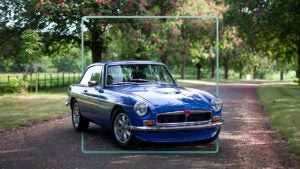Can you get car insurance without a VIN?

In order to purchase car insurance, you’ll need to know the unique vehicle identification number (VIN) for the car you’re planning to insure. Without a VIN, you can’t get car insurance. In certain cases, it’s possible to get an insurance quote with a VIN — but keep in mind that this quote might not be an accurate predictor of what you’ll actually pay to insure your vehicle.
Do you need a VIN for car insurance?
You always need a vehicle identification number (VIN) to buy car insurance, but you may not need one to get preliminary quotes.
Insurance companies use a VIN to estimate a vehicle’s actual cash value — that is, the monetary value your policy would need to pay out if the car was totaled. But VINs can also provide insurers with key information such as vehicle history, safety ratings, insurance loss rates or engine size, all of which can impact the risk factors associated with a specific vehicle. If you need auto insurance — or just want an accurate estimate of what you’d pay for a policy — you need to have the exact VIN of the vehicle you’re insuring.
However, insurance companies may be able to offer a general insurance quote without a VIN. If you’re just starting the process of shopping for a car, this type of general quote could help you get an idea of the financial ballpark you’re in when it comes to insurance rates. Just keep in mind that this quote won’t be as accurate as the final quote you’ll receive when you provide the VIN. Moreover, you won’t be able to buy a policy without the VIN in hand.
Why do VINs matter?
A VIN is to a car what your fingerprint is to you. It’s unique to each vehicle and includes a wealth of information in its 17 characters that tells your insurer about the car’s origins and history. No car on the road has the same VIN, so your insurer knows exactly what it needs to accurately quote your policy.
Each character in your car’s VIN is coded with a particular piece of information, including the following:
- The country the car was made in
- The vehicle’s make and model, along with more detailed information such as the engine type and transmission
- The year the car was made
- The manufacturing plant where the car was assembled
- Manufacturer-specific information, such as factory-fitted options on the vehicle
For your insurer, the VIN is a vital piece of information that allows it to assess the risk it may undertake when insuring the car. Sharing your car’s VIN with potential insurers allows underwriters to look up that specific vehicle’s history, including any accidents or significant repairs, and conduct a precise risk assessment that tailors your insurance rates to the exact needs of your vehicle.
What you need to get car insurance quotes
In order to get a quote for car insurance, you’ll typically need the following information:
- Personal information: The name, address, date of birth and driver’s license numbers for all drivers on the policy
- Insurance and driving history: Information about any previous insurance coverage as well as any accidents or driving violations in the past five years
- Vehicle information: Your car’s make, model, mileage and year, along with VIN (in most cases)
Some insurance companies and online quote services can return a quote based on the make, model and year of your vehicle rather than a specific VIN. But every insurance company will request the VIN before they’re able to turn your quote into an active policy. If you got an insurance quote without a VIN, you could see a significant change in price when the quote is adjusted to reflect your car’s value and risk factors.
What you need to get a car insurance policy
In order to move from the quote stage into the underwriting process, your insurance company will need your car’s VIN in addition to the information you provided for the quote. You may also need to provide additional financial information, such as bank routing numbers.
You may find the VIN in a couple of areas in a car. It may be on the driver’s side windshield, which is usually seen most easily by standing outside the car and looking at the corner where the dashboard meets the windshield. If the VIN is not there, you may find it inside the driver’s side door near where the door latches when it closes. Sometimes, the VIN is noted on the inside of the trunk or trunk latch, or on key paperwork such as your vehicle registration or title.
How to estimate your insurance costs without a VIN
If you’re not able to find the VIN for your vehicle — or if you’re shopping for insurance before buying a vehicle — there are a few ways to get a rough estimate of your costs, even though you can’t purchase a policy.
First, if you have a specific car in mind but don’t own it yet, you may be able to find a VIN listed on the dealer’s website. This can be a convenient way to get a closer estimate of the amount you’d pay for a particular make and model based on your personal rating factors.
You can also research the average cost of car insurance for similar vehicles, as well as costs for drivers in your area or demographic. Because rating factors for auto insurance are complex — and because every insurance company uses a different set of algorithms to set prices — these averages will only give a general estimate of the amount you’ll pay to insure your vehicle, but it can be a helpful starting point as you build your insurance budget.
Frequently asked questions
Why we ask for feedback Your feedback helps us improve our content and services. It takes less than a minute to complete.
Your responses are anonymous and will only be used for improving our website.
You may also like

Can you get insurance with a suspended license?

Do you need insurance to register a car?

Can I add a car to my insurance that is not in my name?

Can you get car insurance without a license?




